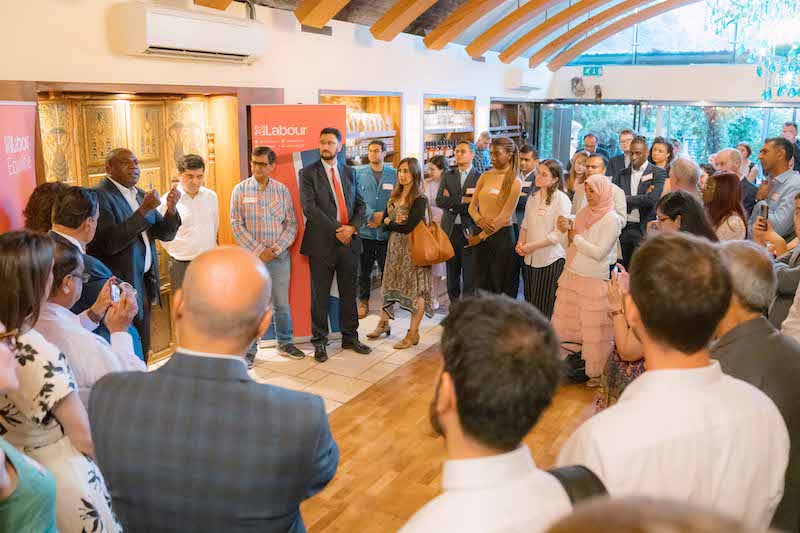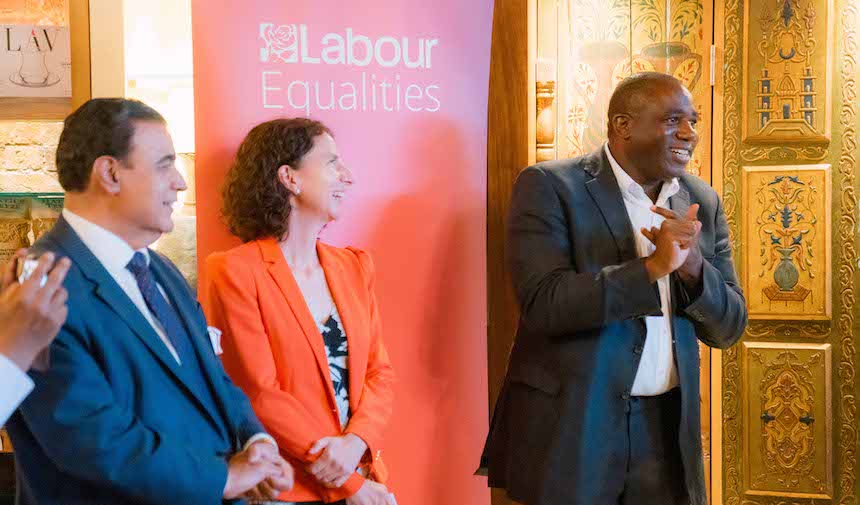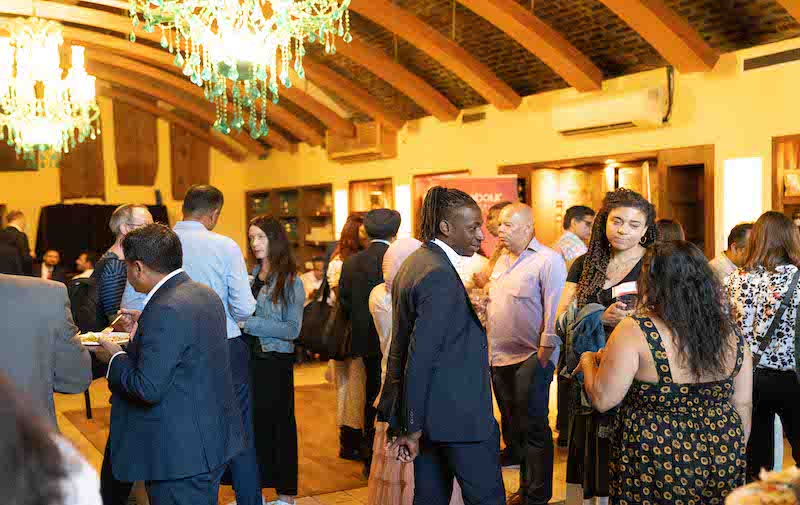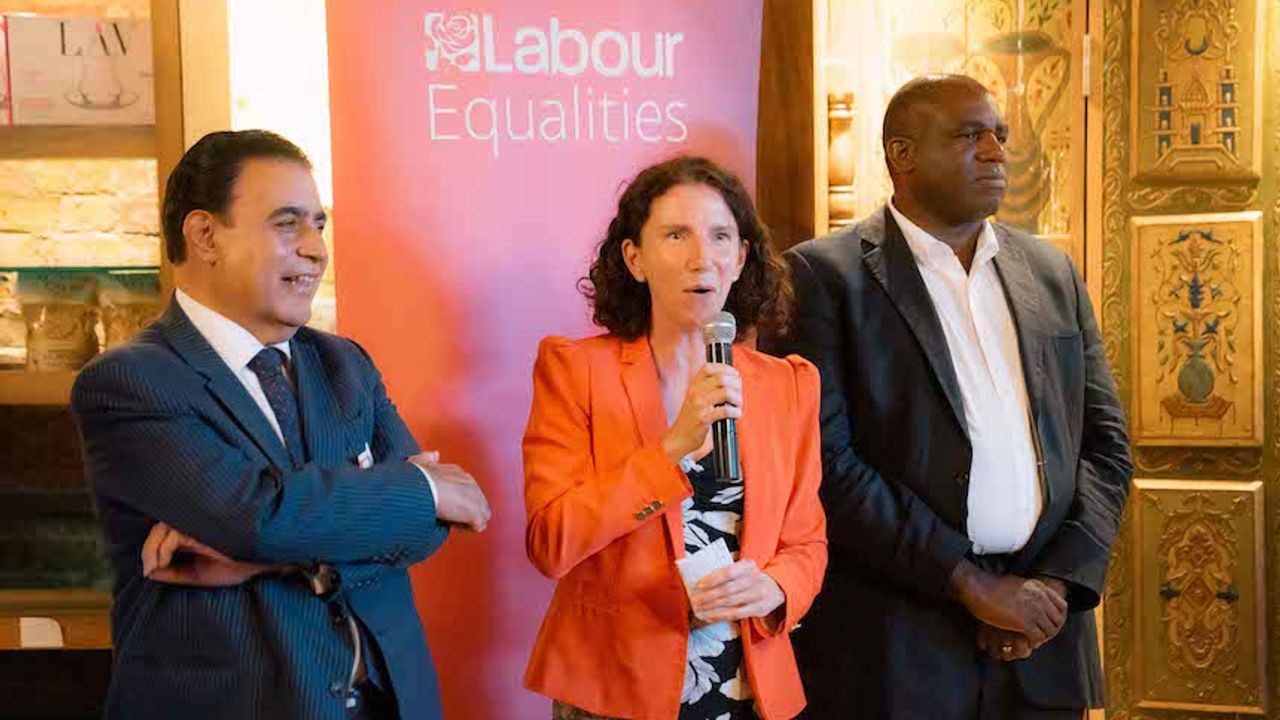england times-Labour to celebrated "Britain’s global bonds and bridges" at reception for diaspora communities, as it outlines goal to reduce hidden fees on remittances sent overseas to fight against poverty. Monday 4th September, Labour host a reception with dozens of leading journalists from across Britain’s diaspora media, as David Lammy commits to finding ways to reduce hidden costs for families to send money to support their families overseas.

Lammy highlighted the huge contribution of Britain’s diverse diaspora communities, through business, culture, art, food and music, social action and community engagement, fighting prejudice and championing a modern Britain.
Lammy, who represents Tottenham, labelled "the most diverse constituency in the world", is of Guyanese heritage and retains close links to the country and to family living there. He pointed every part of Britain has been enriched by the contribution of diverse communities. Also the huge financial contribution made by diaspora communities through remittances. Remittance payments are international transfers sent from households in the UK, typically to support friends and families overseas. They are a key issue for many diaspora communities living in the UK.
The World Bank has estimated the value of these payments from the UK at $10.7 billion (£8.24 billion) in 2022. Yet hidden fees, estimated to cost nearly half a billion pounds
a year, are putting additional pressure on families in the UK already struggling with the cost of living crisis.
The reception, attended by senior members of the Shadow Cabinet including David Lammy, Anneliese Dodds, Thangam Debbonaire, Jonathan Ashworth, Jonathan Reynolds and Pat McFadden.

David Lammy MP, Labour’s Shadow Secretary of State for Foreign, Commonwealth and Development Affairs, said:
"Labour is proud of Britain’s diversity and it’s something we celebrate. Our communities are global bonds and bridges to every continent. It is a great strength not a weakness.
Every part of Britain has been enriched by the contribution of diverse communities.
"Unlike the Tories who seek to pit communities against each other in divisive culture wars, the next Labour government will value the enormous contribution of Britain’s diverse communities both at home and abroad.
"The positive impact of diaspora communities to fighting poverty and inequality through remittance payments is too often overlooked. Costly hidden fees on these payments put
financial pressure on families in Britain already struggling to make ends meet in the Conservative cost of living crisis."
"In government, Labour will set the goal of reducing the obstacles and costs to cross border payments, keeping money in the pockets of Britain’s communities and allowing them to build on their contribution to Britain’s impact in the world."

Remittances are transfers from residents in one country to residents in another, typically a transfer of earnings sent in cash or goods to support families back home. They have been growing significantly in recent years and represent a key source of foreign income for many developing countries.
Reducing transfer costs on remittances to 3% globally was one of the UN Sustainable Development Goals the UK and 190 UN member states signed up to in 2015. International payments involving foreign exchange rates can be expensive, with many involving costly hidden fees, averaging at 5-6% in the UK.
According to the World Bank, remittance flows from the UK reached $10.7 billion (£8.24 billion) in 2022 alone. If the UK had met the 3% SDG target
an estimated $304m (£234m) in transfer fees could have been saved.
Evidence suggests that remittance flows are more stable than foreign direct investment (FDI) and are typically countercyclical, with migrant and diaspora communities sending more money to families abroad when things are tough at home. New research from QMUL showed a marked increase in the number of UK Indian, Somali and Brazilian families sending money home between 2019 and 2020, when the pandemic began. The average remittance was just under £2,000.
In 2020, remittance payments were estimated to account for more than 5 percent of GDP in 60 developing countries. In many countries, remittances surpass international aid in volume.
Labour’s foreign and international development team has been consulting with stakeholders including MTOs, academics, the regulator and civil society about how the next government could help reduce costs.



